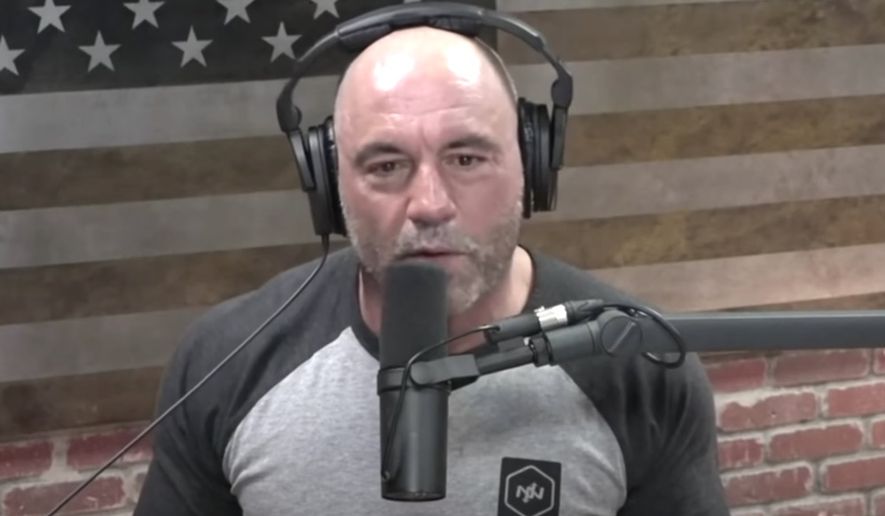Joe Rogan says tech giants need to realize that they’re “alienating a giant chunk of the population” when they ban popular users — particularly right-leaning celebrities — for expressing their opinions on social media.
The podcasting icon recently sat down with pundit David Pakman for a wide-ranging interview when the subject turned to the heavy hand of censors on YouTube, Twitter, and other social media platforms.
Mr. Rogan, who recently signed a $100 million deal to move his show to Spotify, said that Silicon Valley power players are faced with a “different world” than the days of short posts about going to the movies.
“When you’re dealing with the ability to discuss things and you might say that your perspective is the one that you want to hear because you’re a left-wing person and these are you beliefs, but you’re isolating the whole other team from being a part of that conversation,” he said on May 22. “Maybe they have something you want to hear and maybe they don’t have anything you want to hear, but to not allow them to communicate you are alienating a giant chunk of the population.”
The famous UFC commentator added that penalizing a site’s most popular figures can send a chilling message as it pertains to the idea of free speech.
“If someone gets to a prominent level where they’re communicating a certain way, and you just decide that that certain way is unacceptable and you kick them off, you don’t just kick them off,” Mr. Rogan said. “You also silence all the other people that are along or aligned with them. Because they have similar ideas and they don’t want to speak out either. When you ban James Woods, you don’t just ban James Woods. You ban a lot of other people from saying something. They might be furious about the Russia investigation or whatever. They want to express themselves. And they panic. They get scared. They worry that they’re going get — that’s censorship. That’s a form of censorship.”
Mr. Rogan said that despite his criticism, he’s not “at war” with YouTube and doesn’t envy the jobs required by high-level decision-makers.
“I made this deal with Spotify because it’s a great company, and it’s a great deal, and I’m excited to be in a partnership with a company as opposed to like a company that I just put myself up on their platform whether it’s Apple or YouTube,” he said. “I don’t like that YouTube censors things. I don’t like that they do that like those [censoring] doctors in Bakersfield [talking about coronavirus] but I’m not at war with them. I’m not a war with anybody.”
• Douglas Ernst can be reached at dernst@washingtontimes.com.




Please read our comment policy before commenting.